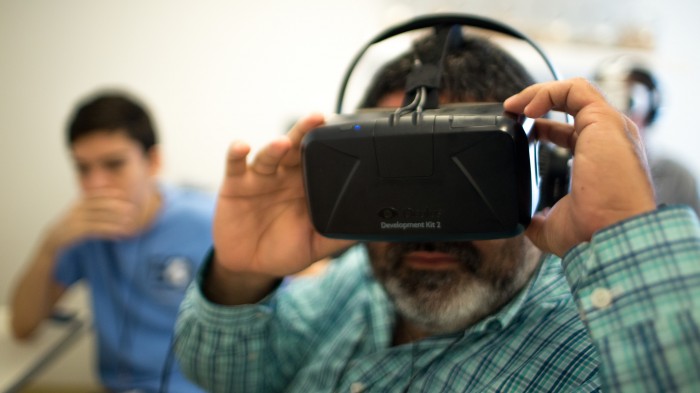Should We Vacation in Virtual Reality?
Virtual reality could, among many other things, be a great way for all kinds of people to experience things they might not be able to afford in reality, such as fancy vacations to far-flung destinations.
As a piece this week in Wired points out, Oculus founder Palmer Luckey and chief technology officer John Carmack have gone so far as to refer to a “moral imperative” to create an accessible alternative reality.
You would, of course, have to convince people to strap on a virtual-reality headset in the first place. But the author of the piece, Wagner James Au, notes that while living in Beijing he noticed people who seemed obsessed with escaping the crowds and smog of the city for 3-D fantasy games played on their phones or in Internet cafes.

That could lead to another problem: people becoming so entranced by their virtual lives that they don’t spend enough time engaging in their real ones.
So how to balance the fun escape that virtual reality may provide with a world like that depicted in the book Ready Player One, where VR serves largely as the setting for people's actual lives?
For now at least, it’s a bit premature to worry about making the imagery and experiences within virtual reality mimic real life or depict idealized versions of it. Without a host of other technologies to mimic things like touch, smell, and even taste, it’ll be hard for such experiences to truly take the place of the real thing.
Like the smartphone, virtual reality presents a whole new template for interactions —one that can be totally immersive, if done right. And as with the smartphone, it’s highly unlikely at this stage that anyone’s vision for it will come close to predicting the things—good and bad—that people ultimately do with it.
(Read more: Wired, “Facebook’s Oculus Says Gaming Is Just One Thing You’ll Do in Virtual Reality”)
Keep Reading
Most Popular
Large language models can do jaw-dropping things. But nobody knows exactly why.
And that's a problem. Figuring it out is one of the biggest scientific puzzles of our time and a crucial step towards controlling more powerful future models.
How scientists traced a mysterious covid case back to six toilets
When wastewater surveillance turns into a hunt for a single infected individual, the ethics get tricky.
The problem with plug-in hybrids? Their drivers.
Plug-in hybrids are often sold as a transition to EVs, but new data from Europe shows we’re still underestimating the emissions they produce.
Stay connected
Get the latest updates from
MIT Technology Review
Discover special offers, top stories, upcoming events, and more.